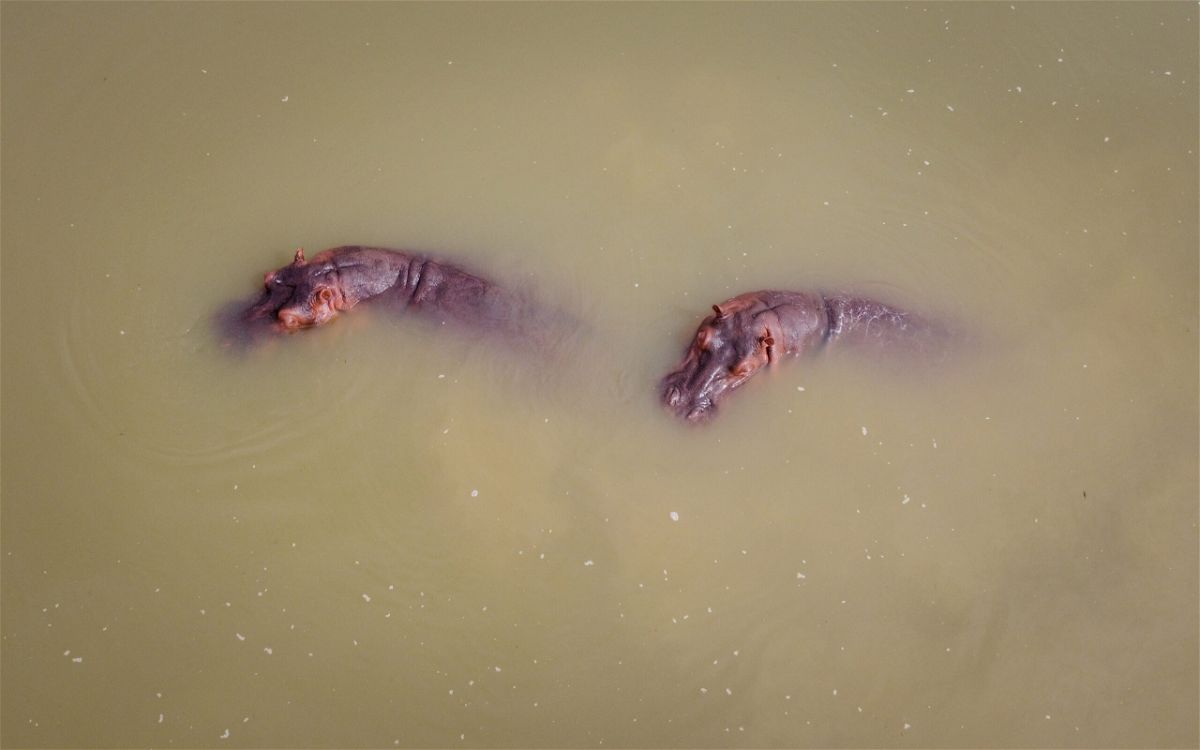Relocating 70 of Pablo Escobar’s ‘cocaine hippos’ to cost around $3.5 million

The hippos will be transported to sanctuaries in Mexico and India.
By Mia Alberti and Issy Ronald, CNN
Colombia’s plans to relocate 70 “cocaine hippos” descended from drug trafficker Pablo Escobar’s private menagerie will cost approximately $3.5 million, officials said in a press conference Wednesday.
It will form part of a deal that the local Antioquia government signed with various institutions including the Colombian Agricultural Institute, the Colombian Air Force and the Ostok Sanctuary in Mexico where 10 hippos will be transported, a statement released on Wednesday said.
A sanctuary in India will provide a new home for the other 60 hippos since it is impossible to transport them back to their native Africa and risks upsetting the local ecosystem there.
The deal will allocate resources to build boxes and cover air transport costs for the hippos, whose population has boomed despite the efforts of authorities to control it using castrations and “shots” of contraceptive darts.
There are now between 130 and 160 of the hippos, according to the Colombian government, and they have spread out far beyond Escobar’s former ranch of Hacienda Napoles, where they began as a population of just one male and three females.
The original hippos were part of a collection of exotic animals Escobar had amassed in the 1980s at his ranch about 250 kilometers (155 miles) from Medellín. After his death in 1993, authorities relocated most of the other animals, but not the hippos — because they were too difficult to transport.
But they have since begun to reproduce rapidly, free from any natural predator, extending their reach along the Magdalena River basin, and they now pose an environmental challenge and are concerning nearby residents, authorities say.
“We’re looking to save the lives of hippos, but also to protect the lives of people in the Magdalena Medio region,” Anibal Gaviria, governor of Antioquia Department, said in a press conference on Wednesday.
Recently declared an invasive species in Colombia, the hippos’ threat to agriculture and people’s safety has been well documented in research, as has the impact of hippo waste on oxygen levels in bodies of water, which can reduce water quality and cause mass fish deaths.
Once the Ministry of Environment issues “hippo passports,” the transport process can happen and it is expected to take place by the end of the first semester of the year, the statement read.
The-CNN-Wire
™ & © 2023 Cable News Network, Inc., a Warner Bros. Discovery Company. All rights reserved.
CNNE’s Ángela Reyes Haczek and CNN’s Kathleen Magramo contributed reporting.



